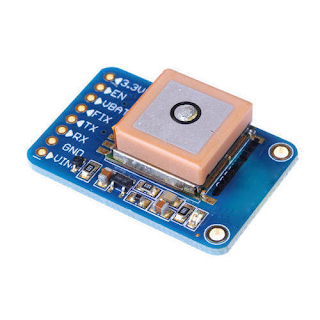A GPS module is a device that receives and processes signals from GPS satellites to determine a device's precise location. The module typically consists of a GPS receiver, an antenna, and a microcontroller. The GPS receiver acquires signals from GPS satellites, while the antenna receives these signals and sends them to the microcontroller for processing. The microcontroller then determines the device's location, velocity, and time and sends this information to the device.
How GPS modules work:
GPS modules receive signals from multiple GPS satellites orbiting the earth. The module calculates the time taken for the signal to reach the module from the satellites and uses this information to determine its location. The GPS module also requires a clear line of sight to the satellites to receive signals.
Common Reasons for GPS Module not Responding:
Inadequate Power Supply:
One of the most common reasons for GPS module issues is an inadequate power supply. GPS modules require a stable power supply to function correctly. A low or fluctuating power supply can cause the module to fail to acquire satellite signals or provide inaccurate location information. If your GPS module is not responding, check your power supply and ensure it meets the module's power requirements.
Read More:
How To Update Xgody GPS Map Navigation
Faulty Connections:
Faulty connections between the GPS module and the device can also cause the module to fail. Loose or corroded connections can prevent the module from receiving or sending signals correctly. If you are experiencing issues with your GPS module, inspect the connections between the module and the device and ensure they are secure and free from corrosion.
Outdated Firmware:
Outdated firmware can also cause GPS module issues. Manufacturers release firmware updates to improve the module's performance, fix bugs, and enhance compatibility with other devices. If your GPS module is not responding, check the manufacturer's website for firmware updates and install them if available.
Interference from Other Devices:
Other electronic devices can interfere with GPS module signals, causing the module to fail. Devices such as mobile phones, radios, and Bluetooth devices emit signals that can disrupt the GPS module's signal. If you are experiencing issues with your GPS module, ensure that there are no other electronic devices nearby that may be causing interference.
Troubleshooting GPS Module Issues:
However, like any electronic device, GPS modules can encounter issues that can affect their performance. In this article, we will discuss the common issues that GPS modules encounter and how to troubleshoot them.
Common GPS module issues:
No signal:
The most common issue with GPS modules is not receiving any signal. This could be due to the module being in a location where it cannot receive signals from the satellites. Other causes could be a damaged antenna or a loose connection between the module and the antenna.
Weak signal:
A weak signal can lead to inaccurate readings and slow response time. This can be caused by obstructions such as buildings, trees, or mountains blocking the line of sight between the module and the satellites.
Inaccurate readings:
Inaccurate readings can be caused by a weak signal, interference from other electronic devices, or a malfunctioning module. Inaccurate readings can lead to errors in navigation or tracking applications.
Slow response time:
Slow response time can be caused by a weak signal or an outdated firmware. This can lead to delays in obtaining a fix and affect the performance of the GPS module.
GPS module not recognized:
The GPS module may not be recognized by the device it is connected to. This could be due to a faulty connection or a compatibility issue.
Troubleshooting GPS module issues:
Checking hardware connections:
Check the connections between the GPS module and the antenna to ensure they are properly connected. Also, check the connections between the GPS module and the device it is connected to. Loose connections can cause signal loss or weak signals.
Updating firmware:
Check if there are any firmware updates available for the GPS module. Outdated firmware can cause slow response time and inaccurate readings. Follow the manufacturer's instructions on how to update the firmware.
Resetting the module:
Reset the GPS module to its default settings to troubleshoot issues such as inaccurate readings and slow response time. Follow the manufacturer's instructions on how to reset the module.
Calibrating the module:
Calibrate the GPS module to improve its accuracy. Follow the manufacturer's instructions on how to calibrate the module.
Using a signal amplifier:
A signal amplifier can improve the GPS module's performance by boosting weak signals. A signal amplifier can be used to overcome obstacles such as buildings or trees blocking the line of sight between the module and the satellites.
